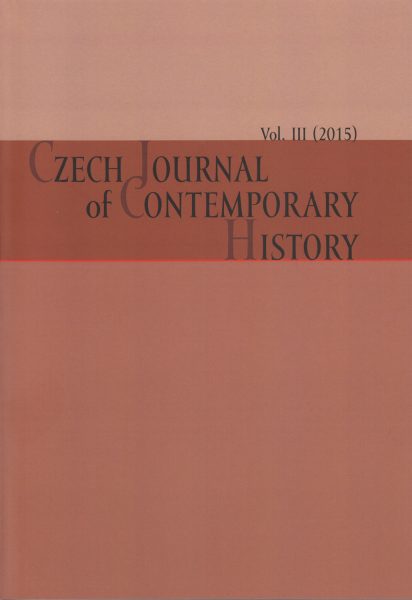Havel’s Anti-Politics à la Different Modes On Suk’s Book on Václav Havel
Havel’s Anti-Politics à la Different Modes On Suk’s Book on Václav Havel
Author(s): Milan ZnojSubject(s): Review
Published by: AV ČR - Akademie věd České republiky - Ústav pro soudobé dějiny
Summary/Abstract: Suk, Jiří: Politika jako absurdní drama: Václav Havel v letech 1975–1989 [Politicsas an Absurd Drama: Václav Havel in the Years 1975–1989]. Praha – Litomyšl,Paseka, 2013, 447 pp. In the presented essay, the author first takes into consideration some of the sources of inspiration and interpretative frameworks of Suk’s book, which have led the author, Znoj, to consider the theme of the absurdity of the socialist world as a component of Havel’s work as a dramatist and a dissident. In a nutshell, the author argues that the anti-politics of the “normalization” period of the 1970s and 1980's took the place of the theater of the absurd of the 1960's. He then describes anti-politics as the construction of a moral world that maintained a distance from the existing political order, and he points out its main features and analyses the meaning of that distance by considering Havel’s well-known essay, “The Power of the Powerless” (1978). Suk’s book, according to the author, is the story of how the dissident’sword became political power. Suk, he argues, has thus demonstrated that he is the best historian of Havel’s dissidence and the end of the regime led by Husák. The book in question is a solid historical work based on a thorough examination of the sources, but its author has gone beyond mere positivism; he has developed a suitable theoretical framework for historical interpretation. The result casts a penetrating light on recent Czech history. Suk’s emphasis on historical continuity gives the interpretation a unifying perspective while, according to the author, papering over some of the seams and smoothing out some of the conflicts of the period. First, Suk has omitted Havel’s distancing himself from Western democracies when he was a dissident, even his distancing himself from liberal democracy per se. Second, he has underestimated Havel’s reluctance to politicise the dissident movement when the matter was being hotly debated in 1989. And, third, Suk appears not to have fully appreciated Havel’s sudden change in his conception of “anti-politics,” which meant Havel’s becoming a political leader and using the methods of realpolitik in the struggle for power.
Journal: Czech Journal of Contemporary History
- Issue Year: III/2015
- Issue No: 3
- Page Range: 227-240
- Page Count: 14
- Language: English

